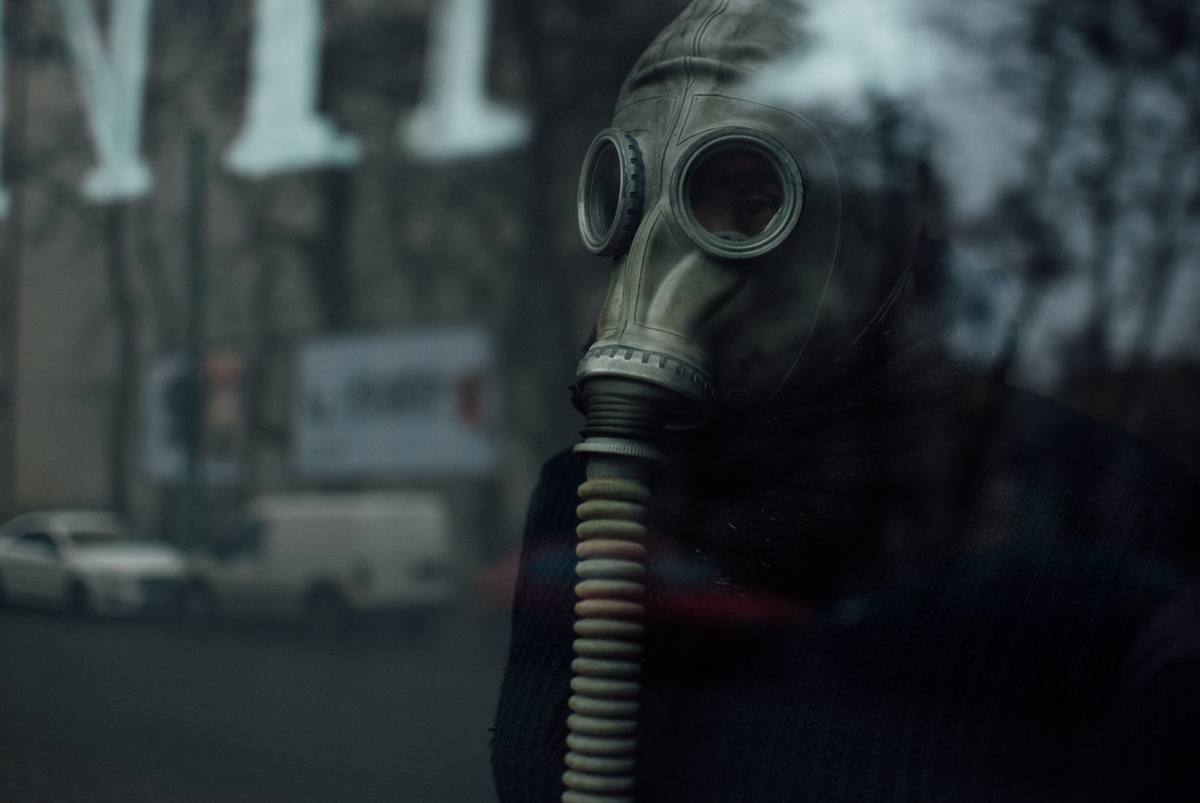"My sisters were scared to death," Ronald said, "but I wasn't scared, or at least not in an obvious way." Born in 1960, he is sharing his experience of growing up during the Cold War. "We watched movies about what to do if the USSR attacked, and had duck and cover drills. I was interested in the science behind the bomb, and I remember my parents and uncle talking about deformed babies, like 'jellyfish', being born after radiation exposure, which I was strangely fascinated by. I did have nightmares about it, but I was always eager to learn anything I could."

Younger generations might not get the reference; it was said that you'd go blind 10 seconds after seeing the flash of a nuclear bomb, in the immediate vicinity of the explosion, for around a minute.
Entire generations were born, and came of age, in the post-Cold-War era. They'll have heard stories about it, and watched films about nuclear war. They'll have had plenty of scary things in their own lives, but the constant feeling of low-level doom, as tensions between two world nuclear powers were always a spark away from a total and worldwide apocalypse, won't have been one of them.
Have you ever wondered how the Cold War — from news reels to hush-hush talk among adults, and from air raid drills to science classes — impacted children who grew up at the height of this nuclear stand-off? Now, you don't have to.
The Psychology of the Cold War in Statistics
The majority of American children who grew up during the 1950s — 60 percent — admitted to having nightmares about nuclear bombs. Forty-four percent of a group of schoolchildren surveyed during the 1960s felt like a nuclear war was in their future, and 95 percent were worried about it. When asked what three wishes they'd have come true, only a few stray members of the same group of kids didn't include world peace among their top picks.
The children's fears were fueled by the adults in their society, as the Cold War was a period marked by apocalyptic films and TV shows, such as The Day After, and songs like Four Minutes.
One Nevada school teacher remarked, in 1952, that "the first-graders...learned to spell 'atom' and 'bomb' before they learned 'mother'." Although a few research teams gathered data on children's attitudes to the threat of nuclear war or disaster during the 1950s and '60s, studies on the topic of reducing the psychological impact of the Cold War don't begin really picking up speed until the 1980s, by which point the Cold War was nearly over.
Some of these studies noted that children who grew up during the later stages of the Cold War, and who had always lived with the threat of nuclear war, were more realistic about the world-ending potential of nuclear war than people who were already adults when the nuclear bomb first entered the world stage.
At the same time, young people in the 1970s and '80s were cynical about it all, likely because they lived in a world that still hadn't blown up. These kids, one study found, actively judged adults' trustworthiness by the way in which they discussed the nuclear threat — losing trust if they wouldn't do so honestly, with a good dose of realism.
In the last three decades, the world has seen plenty of threats. Somewhere in the world, there has always been armed conflict, and there have been plenty of natural disasters. There was an economic crisis, which shaped younger people's attitudes toward job stability. We've experienced a global pandemic, too, and there's the threat of climate change. Still, nobody who belongs to Gen Z (born between 1997 and 2012) or the upcoming Generation Alpha (born between 2011 and 2025) has grown up with the threat of a global nuclear war in which total destruction — the end of human civilization — was the only possible outcome.
Time will tell if that's about to change, but for now, we can take away some of the conclusions researchers drew during the cold war. Children who are scared of something undeniably scary are best off if the adults in their lives:
- Acknowledge and validate their fears, rather than brushing them off.
- Explain the news in an age-appropriate but truthful manner.
- Allow them to express themselves, including in the form of dark humor.


Your thoughts on this